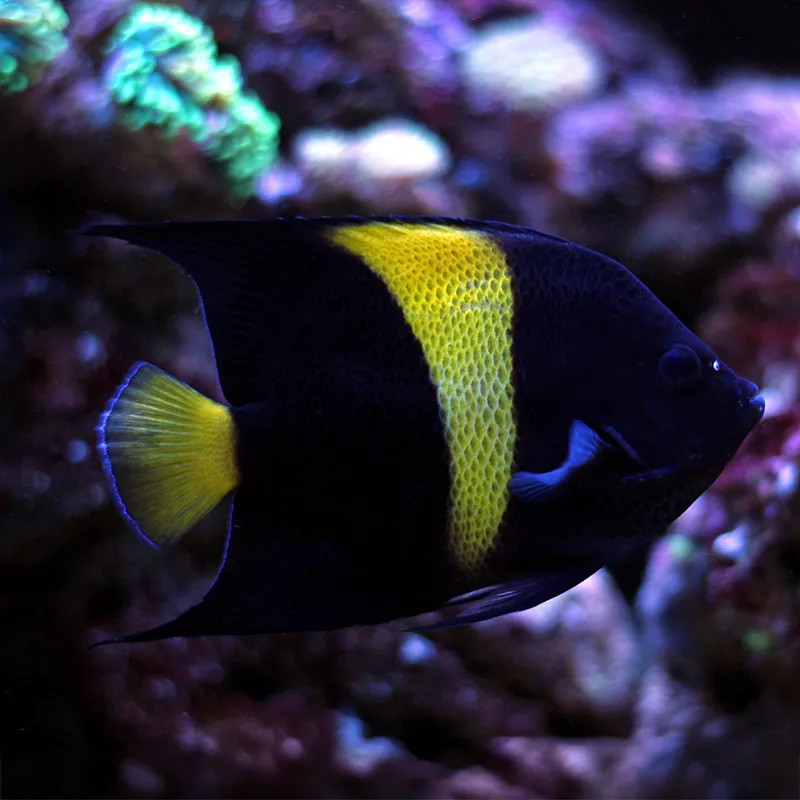Stocks Available
FLAMEBACK ANGELFISH M 1-2 INCH
SKU:226389
Centropyge acanthops
1-2 INCH

Stock Available
Introduction: • Common Names: Arabian Angelfish, Asfur Angelfish • Natural Habitat: Found in the coral-rich lagoons and reefs of the western Indian Ocean, particularly in the Red Sea and the Gulf of Aden. Physical Characteristics: • Appearance: Arabian Angelfish display a vibrant dark blue or almost black body with a striking yellow crescent marking on its back and bright yellow tail. Juveniles have a different pattern with light blue and white stripes. • Size: Grows up to 16 inches (40 cm) in length. • Lifespan: With proper care, can live 15 years or longer in captivity. Habitat Requirements: • Tank Size: Requires a minimum of 180 gallons due to its large adult size and active swimming needs. • Water Conditions: o Temperature: 74-82°F (23-28°C). o pH: 8.1-8.4. o Specific Gravity: 1.020-1.025. • Aquascaping: Needs a well-structured reef setup with ample hiding spaces and open swimming areas. Live rock is preferred, as it allows grazing and exploration, mimicking its natural habitat. Diet: • Primary Diet: Omnivorous; in the wild, it consumes sponges, algae, and small invertebrates. • Supplemental Feeding: Provide a balanced diet in captivity, including high-quality angelfish pellets, frozen foods like mysis shrimp, and foods rich in marine algae and sponge. • Feeding Frequency: Feed two to three times a day to ensure a well-rounded diet and prevent malnutrition. Compatibility: • Temperament: Generally semi-aggressive, especially towards other angelfish. It can become territorial as it matures. • Suitable Tank Mates: Compatible with other moderately aggressive fish of similar size and temperament, such as certain tangs and large wrasses. • Incompatibilities: Avoid housing with smaller, more timid species, as well as with other angelfish due to potential territorial behavior. Care Level: • Difficulty: Moderate to advanced; requires a well-established aquarium with stable water parameters and regular maintenance. • Health Monitoring: Monitor for common marine diseases, such as ich and fin rot. Keep water quality high to prevent stress-related illnesses. Breeding: • Breeding in Captivity: Rarely bred in captivity due to its large size and specific habitat needs. • Spawning: Generally, Arabian Angelfish form pairs in the wild and spawn by releasing eggs and sperm into the water column. Economic Considerations: • Market Demand: Highly desired by advanced marine aquarists due to its unique appearance and large size. • Pricing: Priced on the higher end of the angelfish spectrum, reflecting its rarity and care requirements. Conclusion: The Arabian Angelfish is a visually stunning species, admired for its bold coloration and regal presence. It is best suited for experienced aquarists who can provide a large, stable environment with high water quality. This angelfish can become a captivating centerpiece in a properly designed marine aquarium, bringing a touch of the Red Sea's vibrant biodiversity to the home aquarium.
Data sheet
16 other products in the same category:
Customers who bought this product also bought: